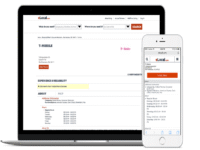Davis-Bacon Fringe Benefits: What Contractors Need to Know

When it comes to federal construction contracts, understanding the intricacies of the Davis-Bacon Act is crucial. This long standing legislation ensures that construction workers on these projects are paid fair wages. However, Davis-Bacon compliance involves more than just certified payroll. Contractors must also navigate the complex world of Davis-Bacon fringe benefits. In this article, we will explore what contractors need to know about Davis-Bacon fringe benefits and how to ensure compliance. So, let’s dive in and unravel the intricacies of this important aspect of federal construction contracts.
What are Davis-Bacon Fringe Benefits?
Davis-Bacon fringe benefits refer to the additional benefits provided to construction workers on federal projects in addition to their basic wages. These fringe benefits include contributions to health insurance, retirement plans, apprenticeship programs, vacation pay, and other benefits. The purpose of these benefits is to ensure that workers receive fair compensation for their labor, taking into account the full package of benefits offered by the contractor.
Calculating Fringe Benefit Rates
Determining the appropriate fringe benefit rate can be a complex task. Contractors are required to pay the prevailing wage rate, which includes both wages and fringe benefits, as determined by the Department of Labor (DOL). The DOL publishes wage determinations for specific geographic areas, detailing the prevailing wage rates and fringe benefit rates applicable to each trade and occupation.
To calculate the fringe benefit rate, contractors must carefully review the wage determinations issued by the DOL. These determinations specify the amount that contractors must allocate towards fringe benefits. It is essential to accurately determine the applicable fringe benefit rate for each worker to ensure compliance with the Davis-Bacon Act.
Ensuring Compliance with Davis-Bacon Fringe Benefits
To maintain compliance with Davis-Bacon fringe benefit requirements, contractors must implement robust systems and practices. Here are a few key steps to follow:
- Review Wage Determinations: Regularly review the wage determinations issued by the DOL to stay updated on prevailing wage rates and fringe benefit rates applicable to your project. This ensures that you are correctly compensating your workers and offering the required fringe benefits.
- Track and Document Fringe Benefits: Keep accurate records of the fringe benefits provided to each worker. This includes maintaining documentation of contributions made towards health insurance, retirement plans, vacation pay, and other benefits. These records will serve as proof of compliance during audits or investigations.
- Utilize Certified Payroll Software: Investing in certified payroll software can simplify the process of tracking and documenting fringe benefits. These specialized tools automate calculations, generate accurate reports, and provide an organized system to manage payroll compliance.
- Stay Updated on Changes: The regulations and requirements related to Davis-Bacon fringe benefits may evolve over time. It is crucial to stay informed about any changes in the law or interpretations by regulatory authorities. Regularly consult legal experts or industry associations to ensure that your practices align with the latest standards.
Benefits of Davis-Bacon Fringe Benefits Compliance
While ensuring compliance with Davis-Bacon fringe benefits may require additional effort, it offers several benefits for contractors:
- Enhanced Reputation: Compliance with Davis-Bacon fringe benefits demonstrates a commitment to fair and equitable treatment of workers. This can enhance your reputation and make you a preferred contractor for future federal projects.
- Avoid Penalties and Legal Issues: Non-compliance with Davis-Bacon fringe benefits can lead to penalties, legal disputes, and potential contract termination. By adhering to the regulations, you can avoid these costly consequences.
- Competitive Advantage: Compliance can provide a competitive advantage when bidding for federal contracts. Many government agencies prioritize contractors with a proven track record of compliance, increasing your chances of winning projects.
Understanding the Importance of Davis-Bacon Fringe Benefits
Davis-Bacon fringe benefits go beyond ensuring fair wages for construction workers. They play a crucial role in promoting worker well-being, supporting local economies, and maintaining a skilled workforce. By offering comprehensive fringe benefits, contractors demonstrate their commitment to the welfare of their workers and contribute to the overall development of the construction industry.
Navigating the Complexity of Davis-Bacon Fringe Benefits
Navigating the complex landscape of Davis-Bacon fringe benefits can be challenging for contractors. It requires a thorough understanding of the prevailing wage determinations, accurate calculations of fringe benefit rates, and diligent record-keeping. Contractors must stay updated on changes in regulations and interpretations to ensure compliance. Additionally, the use of specialized Davis-Bacon certified payroll software can streamline the process and reduce the margin for error.
Conclusion
Davis-Bacon fringe benefits play a vital role in ensuring fair compensation for construction workers on federal projects. Contractors must familiarize themselves with the regulations, accurately calculate the fringe benefit rates, and implement robust systems to ensure compliance. By doing so, contractors can avoid penalties, enhance their reputation, and gain a competitive edge in the federal construction industry. Remember, Davis-Bacon fringe benefits are not just a legal requirement; they are an integral part of promoting fair wages and creating a positive working environment in the construction sector.
Contact Foundation Software today to schedule a personalized demo and see how our software can streamline your processes, enhance your reputation, and promote fair wages for construction workers.






